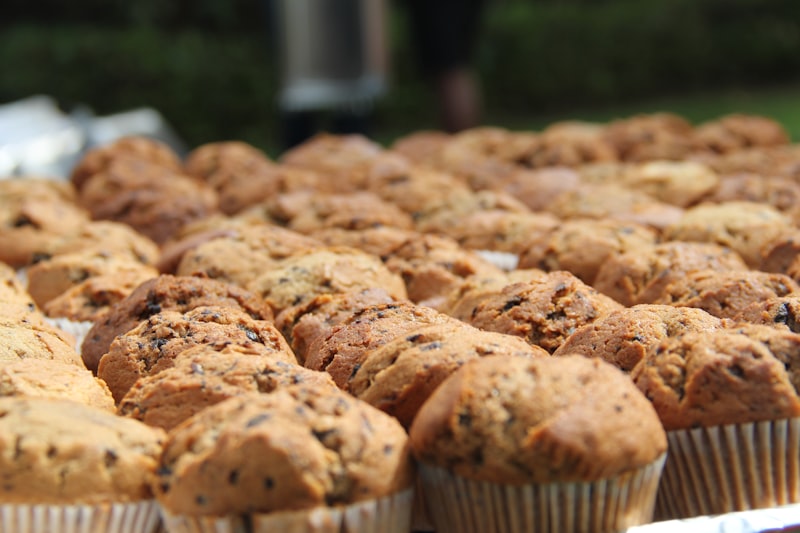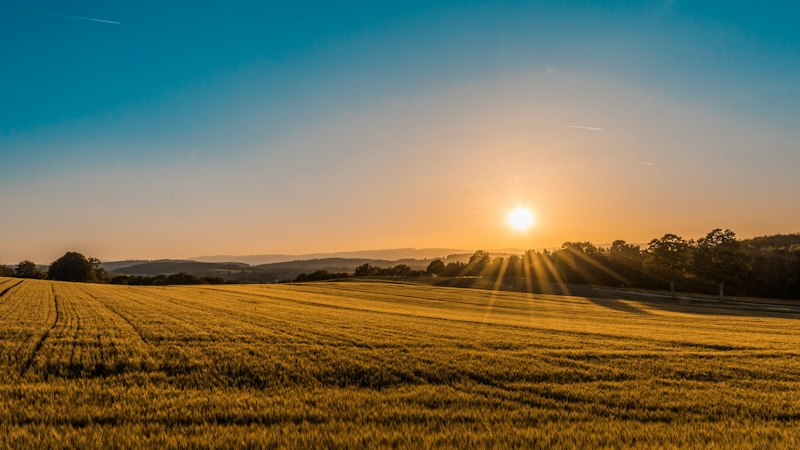Introduction:
Have you ever wondered which country ensures the safest food for its citizens? With an increasing focus on health and well-being, it’s crucial to understand the significance of food safety standards. In this article, we will delve into the topic of food safety and explore some countries known for their rigorous measures in ensuring safe and high-quality food for consumers.
Ensuring Safe Food:
When it comes to food safety, certain countries have established themselves as global leaders. One such country is Denmark. Renowned for its stringent regulations, Denmark prioritizes consumer protection through meticulous inspections and continuous monitoring of food production processes. Their proactive approach has earned them a reputation for having one of the world’s safest food supplies.
Another country that stands out for its commitment to food safety is Singapore. Despite limited agricultural resources, Singapore has implemented robust regulatory frameworks and strict enforcement measures. By carefully monitoring imports, conducting thorough inspections, and maintaining a comprehensive traceability system, Singapore ensures the safety of its food supply chain.
The Netherlands is also recognized for its exemplary food safety practices. The country’s emphasis on risk analysis, hazard control, and transparency sets a high bar for other nations. Rigorous checks throughout the entire food production process, from farm to fork, contribute to the Netherlands’ reputation as a leader in food safety.
Switzerland, with its meticulous attention to detail, is another country known for its safe food practices. Through comprehensive legislation, regular audits, and a strong focus on education, Switzerland maintains high food safety standards. Their emphasis on quality assurance safeguards public health and instills confidence in consumers.
Conclusion:
Countries around the world are making significant efforts to ensure the safety of their food supplies. Denmark, Singapore, the Netherlands, and Switzerland are just a few examples of nations that prioritize food safety through rigorous regulations, extensive inspections, and comprehensive monitoring systems. By implementing these measures, they inspire confidence in consumers and set an example for others to follow. Remember, when it comes to food safety, knowledge is power – stay informed, be aware, and make informed choices for a healthier future.
Food Safety Index Ranks Finland as the Safest Country for Food Consumption
Did you know that Finland has been ranked as the safest country for food consumption according to the Food Safety Index? It’s an incredible achievement that highlights Finland’s commitment to ensuring the highest standards of food safety. In this article, we’ll delve into the details of this ranking and explore why Finland stands out in this aspect.
Food safety is a critical concern worldwide, and the Food Safety Index provides valuable insights into the safety measures taken by different countries. The index evaluates various factors such as food handling, hygiene practices, quality control, and regulatory frameworks to determine the overall safety level of a country’s food industry.
Finland’s top-ranking position reflects its comprehensive approach to food safety regulations. The country has implemented stringent guidelines and effective monitoring systems to safeguard public health. Finnish authorities work closely with food producers, distributors, and retailers to ensure that all stages of the food supply chain adhere to strict safety standards.
One of the key strengths of Finland’s food safety system is its focus on traceability. The country has established robust tracking mechanisms that enable the identification and recall of potentially unsafe food products quickly. This not only helps protect consumers from contaminated or adulterated food but also strengthens Finland’s reputation as a reliable exporter of safe agricultural and food products.
Furthermore, Finland’s emphasis on education and training plays a significant role in maintaining high food safety standards. Food handlers are required to undergo comprehensive training programs to acquire the necessary knowledge and skills for safe food handling practices. This proactive approach ensures that everyone involved in the food industry is well-prepared to handle potential risks and maintain the integrity of the food supply.
Finland’s top ranking in the Food Safety Index is a testament to the country’s unwavering commitment to providing its citizens with safe and high-quality food. Through rigorous regulations, traceability measures, and a focus on education, Finland sets a shining example for other countries striving to improve their food safety standards. As individuals, it’s essential for us to be aware of the food safety practices in our own countries and make informed choices to protect our well-being.
New Study Reveals Switzerland Leads in Ensuring Safe Food for Its Citizens
Did you know that Switzerland is leading the way when it comes to ensuring safe food for its citizens? A new study has revealed the impressive efforts made by this country to guarantee the highest standards of food safety. In a world where foodborne illnesses are a significant concern, Switzerland stands out as an example of excellence.
So, what makes Switzerland’s approach to food safety so remarkable? One key factor is its stringent regulations and strict enforcement. The Swiss government has implemented comprehensive laws that cover all aspects of food production, processing, and distribution. These regulations are regularly updated to keep up with the latest scientific knowledge and emerging risks.
Switzerland also places great emphasis on transparency and traceability in the food supply chain. From farm to fork, every step is carefully monitored to ensure that the highest standards of hygiene and safety are maintained. This includes rigorous inspections of food establishments, regular testing of products, and strict labeling requirements.
Another noteworthy aspect of Switzerland’s approach is its commitment to education and awareness. The government and various organizations actively promote food safety practices through public campaigns and educational programs. This helps to empower consumers with the knowledge they need to make informed choices about the food they consume.
Furthermore, Switzerland’s dedication to sustainable agriculture plays a crucial role in ensuring safe food. The country promotes organic farming methods and encourages the use of natural pest control measures. By minimizing the reliance on chemical pesticides and fertilizers, Switzerland reduces the risks associated with harmful residues in food.
Iceland Tops Global Charts as the Country with the Safest Food Standards

Iceland, an island nation nestled in the North Atlantic Ocean, has recently emerged as a global leader in food safety standards. With its pristine natural environment and rigorous regulations, Iceland has secured the top position in ensuring the safety of its food supply. Let’s delve into the reasons why Iceland stands out in this regard.
One of the primary factors contributing to Iceland’s success is its commitment to sustainable and organic farming practices. The country boasts a remarkable abundance of pure water resources and nutrient-rich volcanic soil, creating an ideal environment for agriculture. Icelandic farmers prioritize the use of natural fertilizers and avoid chemical pesticides, resulting in a cleaner and healthier food production process.
Furthermore, Iceland places great emphasis on traceability throughout the food chain. From farm to table, the authorities have implemented strict monitoring systems that track every step of the journey. This meticulous approach enables quick identification of potential issues and facilitates swift action to prevent any risks to public health.
The Icelandic government has also established robust regulatory bodies that oversee food safety. These organizations work tirelessly to ensure that all food-related processes, including production, processing, and distribution, adhere to the highest standards. Regular inspections are conducted, and any deviations from the regulations are addressed promptly and effectively.
In addition to domestic measures, Iceland actively participates in international collaborations to enhance its food safety practices. The country aligns itself with global organizations such as the World Health Organization (WHO) and the Food and Agriculture Organization (FAO). By staying up-to-date with the latest research and recommendations, Iceland continuously improves its policies and procedures.
As consumers, we can take confidence in knowing that Iceland prioritizes our well-being. When we enjoy Icelandic products, whether it’s their succulent seafood delicacies or their nutritious dairy products, we can savor them with peace of mind. The nation’s unwavering commitment to food safety sets an inspiring example for the rest of the world.
Singapore Emerges as a Leader in Ensuring Food Safety for its Population
Singapore, a tiny island nation in Southeast Asia, has emerged as a global leader in ensuring food safety for its population. With its meticulous regulations and innovative approaches, Singapore has created a robust system that safeguards the health and well-being of its residents.
One of the key factors contributing to Singapore’s success in food safety is its stringent regulatory framework. The Agri-Food & Veterinary Authority of Singapore (AVA) sets high standards for food production, importation, and distribution. Stringent checks are conducted at every stage of the food supply chain to ensure compliance with safety standards. This includes regular inspections of farms, food processing facilities, and retail outlets. By enforcing strict regulations, Singapore ensures that only safe and wholesome food reaches its markets, minimizing the risk of foodborne illnesses.

Moreover, Singapore embraces advanced technology and innovation to enhance food safety. For instance, it has implemented a comprehensive traceability system known as “OneFoods.” This system tracks and monitors the entire journey of food products from farm to fork. By leveraging technologies like blockchain and IoT devices, OneFoods provides transparency and real-time information about the origin and quality of food items. This not only helps authorities identify and address potential safety issues promptly but also enables consumers to make informed choices about the food they consume.
Singapore’s commitment to food safety extends beyond its borders. The country actively collaborates with international organizations and neighboring countries to strengthen regional food security. It shares its expertise in food safety management and provides technical assistance to developing nations. Through initiatives like the ASEAN Food Safety Network, Singapore promotes knowledge exchange and capacity building, fostering a safer food environment across the region.
Singapore’s relentless pursuit of food safety has positioned it as a global leader in this crucial domain. Through stringent regulations, technological advancements, and international collaborations, the nation has built a robust system that ensures the well-being of its population. As Singapore continues to evolve and innovate in the realm of food safety, it sets a shining example for the rest of the world to follow.